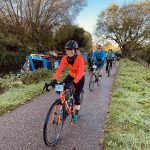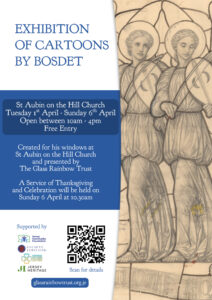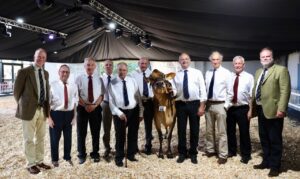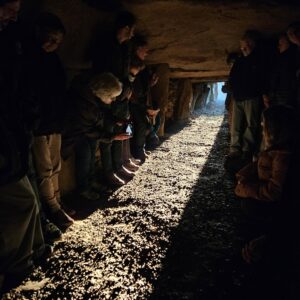
…according to Fran van Dijk, who grew up in Jersey. Why? And why did she cycle 259 miles from Swansea to London? By Caroline Spencer
When Fran van Dijk left Cambridge University, she read a report that set her on her path to being a sustainability expert.
Our Common Future, also known as the Brundtland Report, coined the term ‘sustainable development’ for the first time.
‘They described it as development that meets the needs of the present without compromising the ability of future generations to meet their own needs. You think about society, economy and the environment all at the same time,’ she said. ‘That struck me as an incredibly interesting way of looking at the world.’
The year was 1987, just after Fran had completed her Masters in archaeology and anthropology. ‘It took eight years to develop the skills and experience, study for a European Masters in environmental management, and to get my first job in sustainability consulting in 1995. It was a long path of discovery as well as some hardship – because there were hardly any jobs in it at that time.’
In 2009 she was founding partner of One Stone Advisors Ltd, a global strategy and communications team which helps companies become more successful sustainability leaders. Today she is chief executive and clients include Carlsberg, Electrolux, Sydney Opera House and the travel company Tui. She is also deputy chair of the Scottish Environment Protection Agency and chair of the Macaulay Development Trust which funds research into sustainable land use and hosts Scotland’s premier science lecture.
She has maintained links with the Island where she grew up – she was educated at Jersey College for Girls – and has started some conversations with Island businesses about carbon footprinting and sustainability strategies.
‘I’m very interested in how Jersey’s financial community responds to the climate change challenge because in order to address it we need to put a lot of money into the future-focused technologies and innovations to help us get to where we need to be,’ she said.
Farmers are also going to play a crucial part in mitigating climate change, she says.
‘People talk a lot about trees for absorbing carbon but soil is one of the most important ways to absorb carbon. The more fertile the soil, the more humus-rich it is, the more carbon it can absorb, the healthier it is and this provides the nutrients for healthier plants.
‘There is a massive opportunity for farmers in Jersey. Everyone with land can contribute to making a positive impact. Crops, trees and hedgerows are fantastic habitats. In sustainability, we think inter-generationally. It’s not just about maximising crop yield. It’s about more than just the annual cycle but I appreciate that it is a financial challenge.
‘And people who have gardens can encourage healthy wildlife by steering clear of herbicides and pesticides, which cause serious reduction in insects and potential catastrophic decline.’
Speaking just before COP27 was held in Egypt in November, is Fran positive about the future?
‘I’m frustrated it’s taken so long,’ she said. ‘The need to act on climate change has been evident to me ever since 1987. Two years later Margaret Thatcher made a speech about climate change. As a chemist she understood the interaction in the atmosphere of carbon dioxide and what would result.
‘One would have wanted to see serious action from that point on and it’s been very slow in coming. It is very urgent now.
‘But I am really delighted that a much bigger portion of the population, the business community and governments, are now beginning to commit to net-zero.’
But she adds that people need to have their voice heard and public protests are necessary. And that is why she joined 80 cyclists on the Ride the Change challenge from Swansea to Parliament Square in London, which coincided with the start of COP27. Rather than seeking financial sponsorship, participants asked supporters to make climate commitments.
‘We haven’t seen the change that we know needs to happen and it’s sometimes hard to remain positive,’ she said. ‘I don’t dare hope what I might see within my working life but I am engaging with as many young people as possible and I am starting to hand over what I’ve learned.
‘I feel really bad that our generation is leaving the next generation with nature and climate in dire shape. If this is the legacy we are leaving our children and grandchildren, I want to do what I can to help them deal with that.’





